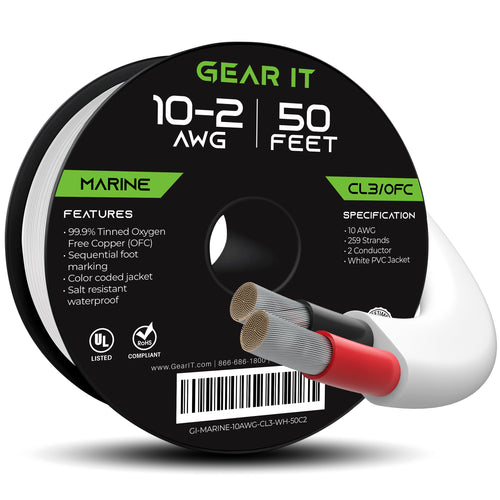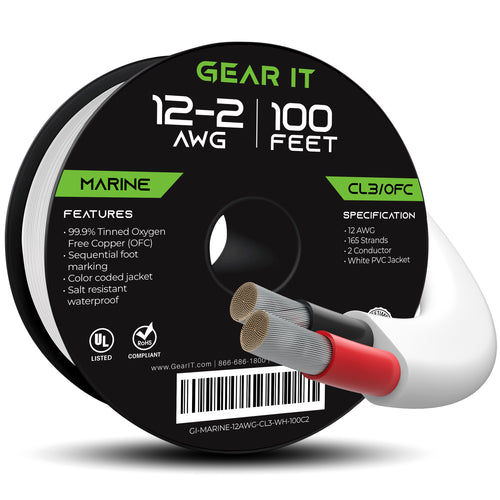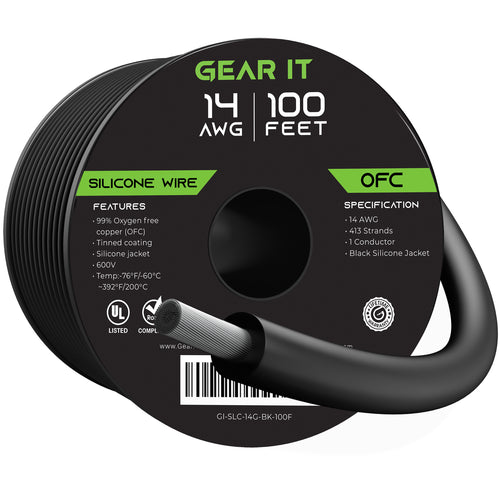
When it comes to marine environments, the materials used must withstand some of the harshest conditions on Earth. From constant exposure to saltwater to the corrosive effects of marine life, every component of a vessel needs to be carefully selected to ensure durability and longevity. One such material that has stood the test of time in marine applications is tinned copper. In this article, we'll delve into the science behind tinned copper and explore why it remains the preferred choice for marine environments.
Benefits of Tinned Copper in Marine Environments:
At its core, tinned copper is simply copper wire that has been coated with a thin layer of tin. This process involves immersing the copper wire in molten tin, allowing the tin to adhere to the surface of the copper. The result is a wire that combines the conductivity of copper with the corrosion resistance of tin giving it additional benefits that are perfect for marine environments:
Corrosion Resistance
One of the primary reasons tinned copper is preferred for marine environments is its exceptional resistance to corrosion. Saltwater is highly corrosive, and untreated copper wires can quickly deteriorate when exposed to it. However, the tin coating provides a protective barrier, preventing the copper underneath from coming into direct contact with corrosive elements.
Extended Lifespan
By protecting the copper wire from corrosion, tinning significantly extends its lifespan. This is crucial in marine applications where replacing wiring can be costly and time-consuming. Tinned copper wiring can withstand the rigors of the marine environment for years, reducing maintenance requirements and downtime.
Improved Solderability
Tin is highly solderable, meaning it readily forms strong bonds with other metals when soldered. This property makes tinned copper wires easier to work with during installation and repairs. Properly soldered connections ensure reliable electrical conductivity, critical for the safe operation of marine equipment.
Resistance to Marine Growth
Marine environments are teeming with life, including algae, barnacles, and other organisms that can attach themselves to surfaces underwater. These marine organisms not only affect the aesthetics of a vessel but can also compromise its performance. Tinned copper's smooth surface inhibits the growth of marine organisms, reducing the need for frequent cleaning and maintenance.
Thermal Stability
Tinned copper maintains its electrical conductivity even at high temperatures, making it suitable for marine applications where equipment may be exposed to heat generated by engines or electrical systems. This thermal stability ensures consistent performance even under challenging conditions.
Conclusion
In the demanding world of marine environments, where exposure to saltwater and corrosive elements is inevitable, choosing the right materials is crucial. Tinned copper has long been the go-to choice for wiring in marine applications, thanks to its exceptional corrosion resistance, extended lifespan, solderability, resistance to marine growth, and thermal stability. By understanding the science behind tinned copper and its benefits, marine engineers and enthusiasts can make informed decisions to ensure the reliability and longevity of their vessels. Whether it's a commercial ship navigating the open seas or a leisure boat exploring coastal waters, tinned copper plays a vital role in keeping marine electrical systems running smoothly.
In the demanding world of marine environments, choosing the right materials is crucial. Tinned copper stands out for its exceptional corrosion resistance, extended lifespan, and more. For reliable marine wiring solutions, explore GearIT's wide selection of tinned copper wiring. Ensure your vessel's electrical systems are built to last, even in the toughest conditions. Trust GearIT for durability and performance on the water.





















































